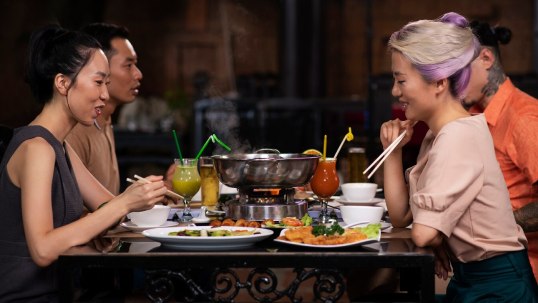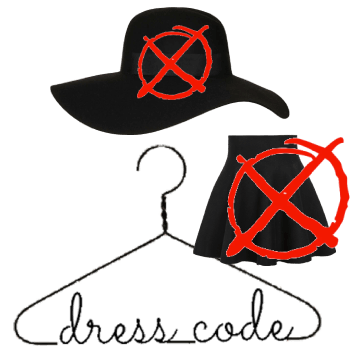
Did you know there’s a hidden etiquette to wearing underwear in public (yes, really!) This guide is for curious travelers like you. We’ll unveil the unwritten rules that go beyond “hello” and “thank you,” from dressing respectfully to navigating mealtime manners. We’ll show you the finer points of Thai culture, helping you avoid any faux pas and ensuring your trip is as enriching as it is exciting. By understanding these local customs, you’ll unlock a deeper connection with Thailand, making your adventure truly unforgettable.
Thailand: Cracking the Code of Local Customs
This guide is your cheat sheet for becoming a cultural chameleon in Thailand. Here are the essentials, from showing respect to elders (think bowing and using polite language) to understanding the secret language of body language (a thumbs up might not mean what you think!).
Just by learning a few key things, you can avoid any awkward situations and unlock a deeper connection with the Thai people. Imagine being invited to a local festival, not just observing from the sidelines but participating with understanding and appreciation. That’s the magic of cultural sensitivity – it transforms your trip from sightseeing to a truly enriching experience for you and for the locals you meet.

Unveiling Local Gems: Respectful Do’s and Don’ts
Every culture has its unique quirks and customs, and Thailand is no exception. To navigate these foreign waters smoothly, familiarizing yourself with a few local do’s and don’ts is key. This way, you can avoid any unintentional offense and ensure a respectful and enriching experience for yourself and the Thai people. Here are some key things to keep in mind:
- Dress for Respect – Temples and religious sites require modest clothing. Opt for covered shoulders and knees for both men and women.
- Photography Etiquette – Before snapping away at a beautiful temple or a friendly local, always ask for permission.
- The Power of “Wai”: Mastering the Wai, a respectful greeting with a slight bow and palms together, goes a long way.
- Respect the Hierarchy – In Thailand, age and social standing are revered. Use polite language when addressing elders and authorities, and be mindful of your body language.

Bridging the Gap: Understanding Body Language
A smile might be a universal sign of friendliness, but have you ever given a thumbs up in a country where it means something entirely different? Non-verbal communication can be a tricky business across cultures. Here are some tips to avoid misunderstandings in Thailand:
- The Head is Sacred – The head is considered the highest part of the body in Thai culture. Avoid touching someone’s head or even pointing your feet towards someone’s head.
- The Power of the Feet – Similarly, the feet are considered the lowest part of the body. Don’t point your feet at someone or a sacred object.
- The Winking Wink – While a wink might be playful in your culture, in Thailand, it can be a rude way to get someone’s attention.
Dress Code and Personal Appearance
When traveling, respecting local customs through appropriate dress and personal appearance is essential. This section will guide travelers on how to dress respectfully across different cultures, especially at religious sites, and offer general grooming tips to maintain decorum and respect during travels.
Appropriate Attire in Different Cultures
Dress codes can vary significantly across different cultures and regions. Travelers must be aware of these variations to avoid disrespect or discomfort. For example, in many cultures, wearing bright and vibrant traditional attire during celebrations can express unity and respect. In contrast, more conservative attire might be appropriate in professional or religious settings. Always researching the cultural norms of your destination will ensure respectful and appropriate interaction.
Specific Dress Codes at Religious Sites

Visiting religious sites requires a particular level of decorum with regard to attire:
- Cover your legs and arms – Most religious sites prefer visitors to wear clothing that covers their legs and arms fully.
- Avoid tight or revealing clothing – Opt for loose-fitting clothes that do not accentuate the body shape.
- Remove hats or headwear – Headwear should be removed as a sign of respect unless otherwise specified, like headscarves or turbans that are part of religious dressing.
- Wear conservative colors – Neutral colors such as black, white, or beige are usually seen as respectful.
- Avoid offensive graphics or messages – Ensure your clothing does not carry potentially offensive or disrespectful messages.
- Research specific requirements – Always check if there are any specific dressing guidelines for the religious site you plan to visit.
General Grooming and Hygiene Tips
Maintaining good personal hygiene is as crucial as wearing appropriate attire. Here are some tips for keeping up with grooming while traveling:
- Personal Hygiene – Regular washing and the use of deodorants keep one fresh and are often appreciated in close social or public environments.
- Grooming Products – Opt for travel-sized grooming products to save space and adhere to airline regulations. Items like a good razor, travel-friendly shampoo, and a basic manicure set can be invaluable.
- Sun Protection – Always carry and use sunscreen to protect your skin from harmful UV rays, especially in tropical locations.
- Adapt to Local Practices – In some cultures, certain grooming practices might be more prevalent, such as the use of specific beauty products or hairstyles. Observing and adapting to these can enhance integration and respect.
Mastering the Art of Communication in Thailand
You’re bargaining at a vibrant Thai night market. You point to a silk scarf, but the vendor seems confused. Maybe it’s the language barrier, but it could also be the way you phrased your question. In Thailand, communication goes beyond just words. It’s a dance of politeness, tone, and even body language. This guide will equip you to navigate conversations with confidence. Here’s the lowdown:
Ditch the fancy phrases and slang. Opt for short, concise sentences to avoid confusion.
A “please” and “thank you” in Thai go a long way. Learning a few basic phrases shows respect and effort, and the locals will appreciate it!
Keep your voice down a notch. Thais generally speak softly, and loud talking can be seen as rude.
Body Language – It Speaks Volumes
Sometimes, actions speak louder than words. In Thailand, non-verbal communication is just as important as what you say. Here’s a quick guide:
Direct eye contact can be a sign of respect in some cultures, but in Thailand, it might be seen as a challenge. A polite glance followed by a respectful look away shows you’re engaged without being aggressive.
A simple nod is a great way to acknowledge what someone is saying. It shows you’re listening and interested.
Active listening is key. Please pay attention to the speaker, avoid interrupting, and use body language, like facing them directly, to show you’re engaged.
The Thai Table Etiquette
The air is filled with delicious aromas, and you’re ready to dig in. But wait, should you slurp your noodles like you saw someone do in Japan? Are utensils even a thing here? Fear not, fellow foodie! This guide will transform you into a Thai dining etiquette pro.
Mind Your Manners – While slurping noodles might be a compliment in other parts of Asia, keep it quiet in Thailand. Focus on savoring the flavors and enjoying the company.
Sharing is Caring – In Thailand, meals are meant to be shared! Don’t be surprised if your food arrives family-style. It’s a chance to try a bit of everything and bond with your fellow diners.
Utensil Etiquette – For most dishes, you’ll get a spoon and fork. The spoon is your main weapon for conquering those delicious curries, while the fork is there to help you navigate rice and push food onto your spoon.
Tipping: A Balancing Act
Leaving a tip can be a tricky business when traveling. In Thailand, tipping isn’t mandatory, but it’s always appreciated, especially at nicer restaurants. A small tip of 10-20 baht shows your appreciation for good service. If you’re unsure, follow what the locals do.
By following these simple tips, you’ll ensure a smooth and enjoyable dining experience in Thailand. Remember, food is a way to connect with people and experience the culture.
Conclusion
This guide traverses the intricate landscape of cultural sensitivities in Thailand, covering everything from appropriate attire at religious sites to the nuances of dining etiquette and communication. By emphasizing the importance of respecting local customs—such as wearing underwear in public and understanding the implications of non-verbal gestures—it aims to prepare travelers for a respectful and enriching experience.